Contact center of the Ukrainian Judiciary 044 207-35-46
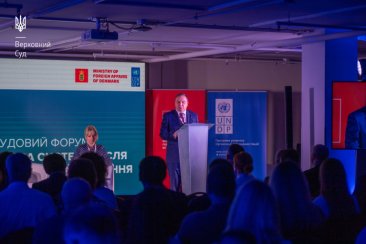
When planning a peaceful future, it is equally important to think about how to live today—how to ensure the effective functioning of the judicial system amid war, security threats, and other challenges; how to properly fulfill the duties entrusted by the state; and how to meet the expectations of a society that strives for justice.
This idea was expressed by Stanislav Kravchenko, President of the Supreme Court, during the 6th Judicial Forum “The Judicial System After the War: Challenges, Solutions, and Development Paths”, organized by the United Nations Development Programme (UNDP) in Ukraine with the support of the Government of Denmark.
According to the President of the Supreme Court, in addition to security risks, the functioning of the judiciary is significantly complicated by staffing shortages, which are becoming increasingly acute due to the constant growth in court workloads. At the same time, since the beginning of the full-scale war, the range of case categories submitted to the courts has greatly expanded. These include, in particular, disputes over compensation for war damages, cases establishing facts related to temporarily occupied territories, and war and military crimes, among others.
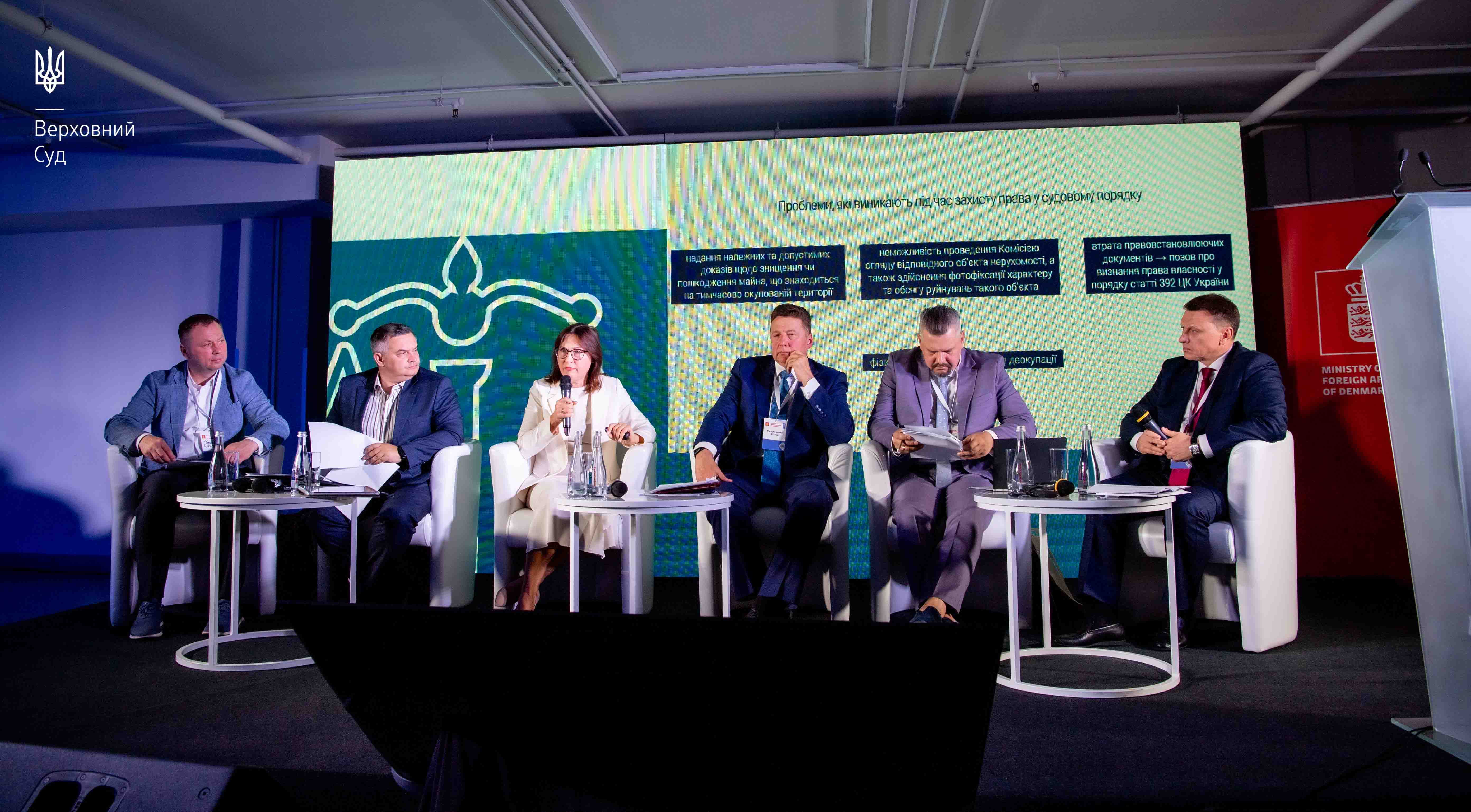
At present, the judicial system manages to maintain stability thanks to the dedication of its existing personnel. However, even the recent positive trend in filling judicial vacancies has not been sufficient to significantly strengthen the courts’ capacity—especially considering that around 150 judges have been dismissed this year.
Stanislav Kravchenko believes that filling at least 80% of vacant judicial positions would not only help reduce judges’ workloads but also shorten the duration of case consideration and improve the quality of justice.
He separately noted that after the completion of the current selection process for appellate courts, the Supreme Court expects the announcement of a competition for positions within the Supreme Court itself, since one-quarter of the judgeships are currently vacant, while the cassation courts receive about 90,000 cases annually.
Additional difficulties are caused by the instability of substantive and procedural legislation and the frequent, unsystematic amendments to it, which create conditions under which many problematic legal issues must be resolved primarily through judicial practice.
Stanislav Kravchenko also emphasized the need to improve the legislative regulation of certain organizational issues in the functioning of the judicial system as part of Ukraine’s steps on its European integration path, highlighting the most important aspects: disciplinary procedures, judicial selection processes, and the optimization of the court network.
Olha Stupak, Judge and Speaker of the Grand Chamber of the Supreme Court, presented a comprehensive analysis of the issues related to compensation for war-related damages.
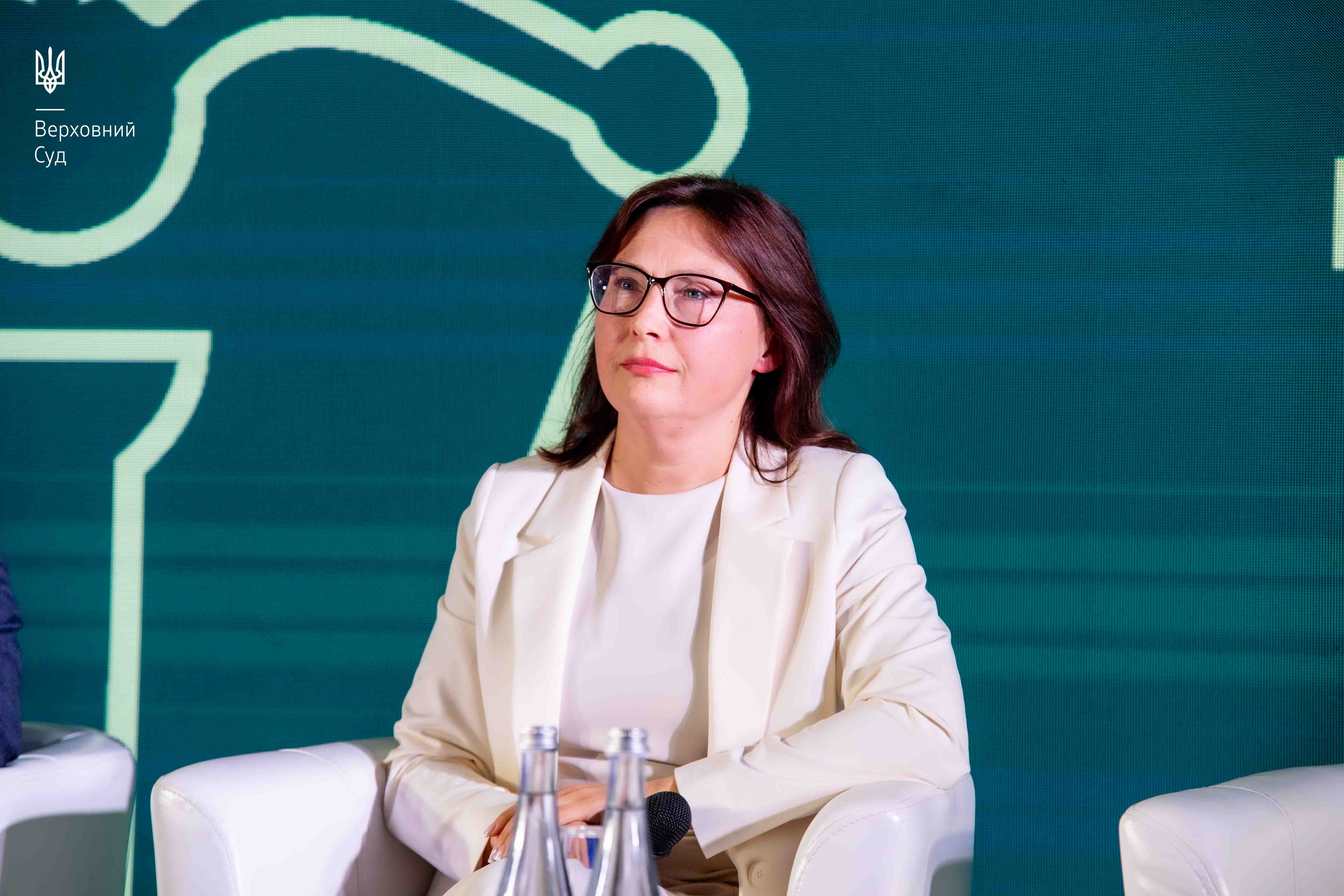
She stressed that the question of compensating harm caused by Russian aggression has become one of the most sensitive issues for both society and the judicial system. Since 2014, national courts have faced a significant number of cases related to destroyed housing and lost personal property. At that time, the Supreme Court recognized that the mechanisms introduced by resolutions of the Cabinet of Ministers of Ukraine were insufficiently effective and urged the state to create functional tools for compensation. Subsequently, such a system was developed, and for a period, citizens could receive compensation through extrajudicial procedures.
However, after Russia’s invasion of Ukraine in 2022, the scale of destruction and the number of affected individuals increased dramatically, making the need for new legal regulation evident. In 2023, the legislature adopted a special law on the procedure for compensating damaged or destroyed housing. At the same time, as the judge noted, this mechanism does not cover all problematic aspects, including compensation for land plots under destroyed buildings or for property located in temporarily occupied territories.
Courts continue to hear numerous lawsuits, including cases against the aggressor state. At the same time, even in such cases, courts must remain faithful to the standards of fairness and reasoned judgment, since decisions are rendered in the name of Ukraine and are subsequently subject to analysis by international experts. “We cannot lower the standard of proof simply because the defendant is absent. Every judicial decision must be of high quality, as it may also be used in international mechanisms, including the International Register of Damage Caused by the Aggression of the Russian Federation against Ukraine,” emphasized Olha Stupak.
She also highlighted the role of the Register of Damage, which began operating in 2025 and accepts applications from citizens regarding lost property. This represents an important step toward restoring justice. In addition, the judge reminded participants of the significance of ECHR case law, which has already established key facts regarding Russia’s effective control over occupied territories and the violation of Ukrainian citizens’ property rights.
In conclusion, the Grand Chamber judge called on her colleagues to exercise utmost responsibility when considering such cases: “Our decisions are read not only in Ukraine but also by international institutions. They must be convincing, well-reasoned, and balanced, as the protection of our citizens’ rights depends on it”.
Yevhen Petrov, Judge of the Supreme Court in the Civil Cassation Court, delivered a report dedicated to the issues of establishing legal facts and compensating war-related damages.

He outlined the Supreme Court’s key approaches to evidence in cases related to the consequences of armed aggression. The judge noted that in the early stages, judicial practice reflected divergent views on the procedure for establishing certain facts, including the possibility of confirming them in administrative proceedings. However, the Grand Chamber of the Supreme Court has formulated a clear position: facts such as cohabitation with a servicemember, death, or disappearance of a person must be established exclusively under civil jurisdiction.
The judge also emphasized complex situations where legally significant facts concern the receipt of social benefits. For example, the Ministry of Defenñe of Ukraine often questions the circumstances of servicemembers’ deaths and objects to applicants’ claims. Nonetheless, the Grand Chamber has determined that even in such cases, the issue is not a dispute over a right, but rather the establishment of a legal fact.
The speaker provided a detailed analysis of practice in cases concerning children’s interests. He recalled the SC Grand Chamber’s opinion of September 11, 2023, in case No. 201/5972/22, according to which the issue of a father independently raising a child cannot be decided in a separate proceeding, even if the mother does not object and is willing to confirm her position in a notarized statement. This approach reflects the need to uphold the best interests of the child, who has the right to be heard, and the court must consider their opinion.
The judge also cited examples from the Supreme Court’s practice regarding the distinction between filing for a declaration of death and establishing the fact of death. He noted that the SC Grand Chamber determined that the six-month period for filing is calculated from the end of active hostilities in the relevant region, though exceptions are possible when there is convincing evidence of a person’s death outside the combat zone.
Andrii Zhuk, Judge of the Supreme Court in the Administrative Cassation Court, focused on the key mission of administrative justice—protecting the rights and freedoms of individuals from unlawful actions or inaction by authorities. Today, a significant number of administrative cases concern the legal protection of servicemembers, veterans, and their family members, covering both social and economic rights during service and after discharge.
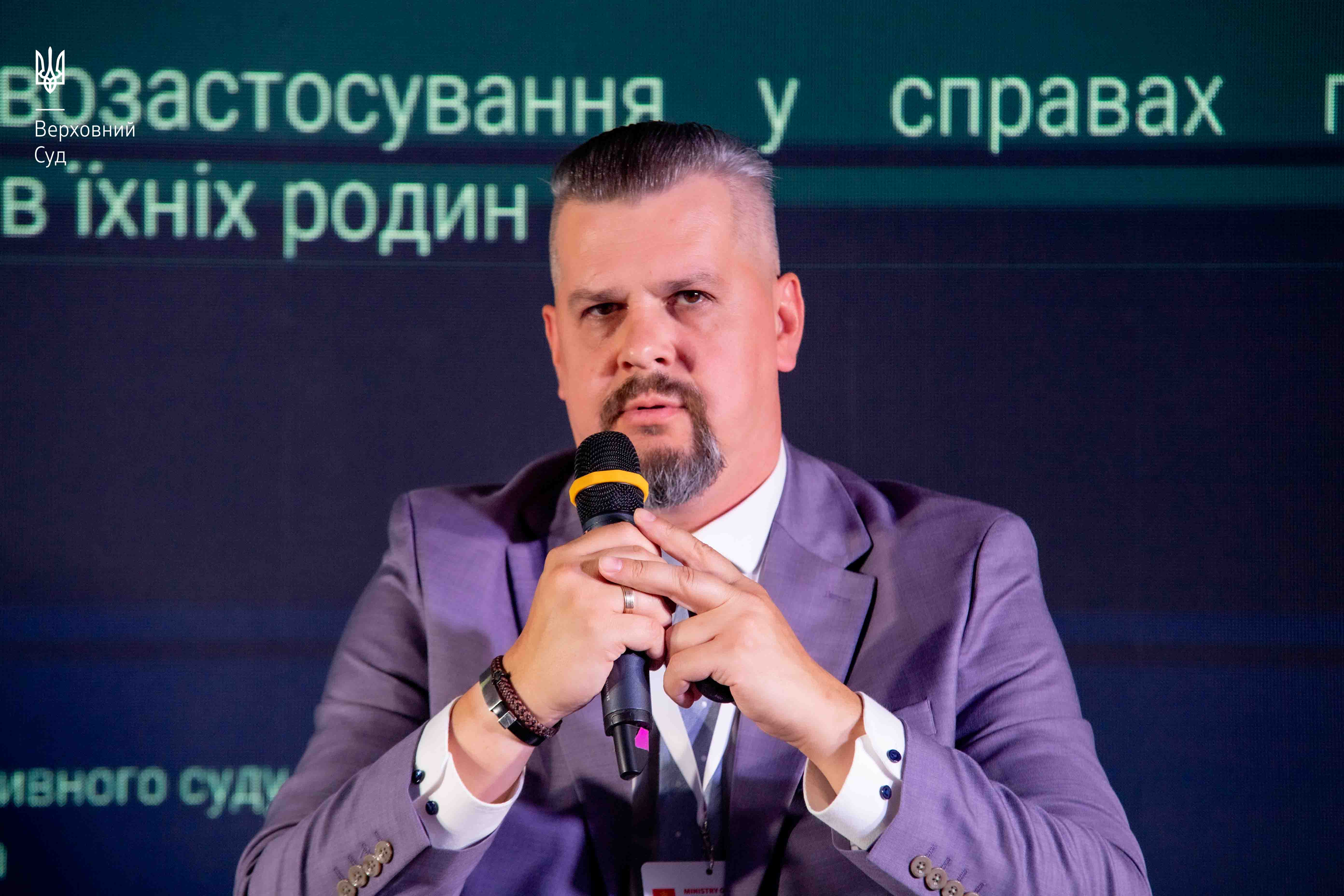
The judge provided a detailed overview of specific legal positions of the Supreme Court that have systemic significance for the formation of consistent judicial practice. One such category of disputes concerns the payment of additional remuneration to servicemembers of up to UAH 100,000, as provided by Resolution No. 168 of the Cabinet of Ministers of Ukraine dated February 28, 2022. The Supreme Court has been consistently developing approaches to the application of this provision, paying attention to the nuances of confirming participation in combat operations. A key piece of evidence is recognized as the commander’s order and the military unit’s certificate, even if it contains formal shortcomings, provided it accurately confirms the servicemember’s involvement in combat.
Another important area involves determining the cause of a servicemember’s death. The Supreme Court emphasized that certain instructions regulating service investigations cannot be applied in cases of death during combat operations. In such disputes, courts must follow special provisions that take into account the wartime context and combat workload.
The judge also highlighted situations where servicemembers request discharge upon reaching retirement age. The Supreme Court clarified that mere eligibility for a retirement pension does not constitute grounds for discharge during martial law, as the relevant provisions apply only in peacetime.
The Court has also developed a generalized position regarding the application of Article 233 of the Labour Code of Ukraine after the end of quarantine, which affected deadlines for claims, including those related to salary and monetary allowances. The Supreme Court departed from certain previous approaches, ensuring a balance between the principle of legal predictability and the protection of the rights of employees and servicemembers.
Additionally, in administrative court practice, the issue arose regarding the right of servicemembers to compensation for lost income in cases of delayed payment of monetary allowances or indexation. The Supreme Court stated that this right arises from the moment the debt is actually paid without compensation, rather than from the initial violation. This ensures effective protection of servicemembers’ interests and harmonizes approaches across different court chambers.
Mykola Mazur, Judge of the Grand Chamber of the Supreme Court, discussed the institutional capacity of the judicial system during the war and post-war period and ways to improve the handling of war and military crimes.
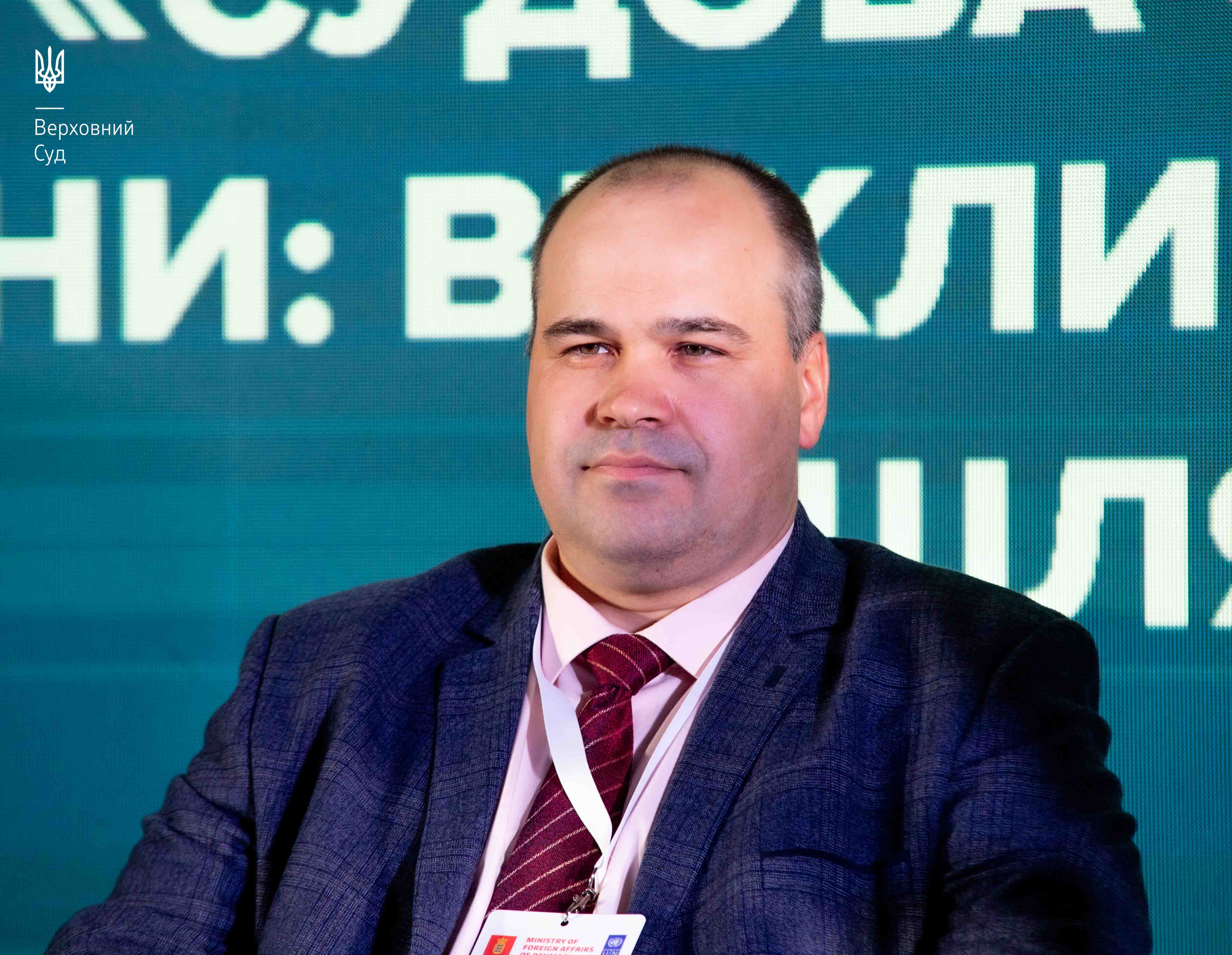
According to data from the Prosecutor General's Office, as of September 9, 2025, more than 181,000 war crimes have been registered. This, according to the judge, allows us to predict that the judicial system will be working on cases of this category not just for years, but for decades.
In this area, the judicial system faces a number of serious challenges. The first is the enormous number of cases being brought before the courts. Moreover, international crimes represent a completely new category of cases for Ukraine’s legal system; nonetheless, judges are already handling these complex cases and seeking ways to establish the highest standards of judicial practice.
Mykola Mazur reported that among the verdicts delivered under Article 438 of the Criminal Code of Ukraine, the majority concern various forms of cruel treatment, unlawful appropriation of property, illegal detention, murder, and sexual violence.
He provided examples of cases involving war crimes committed by Russian servicemembers that have already been adjudicated by Ukrainian courts. The first case, concerning the murder of a civilian by a Russian soldier—who shot the victim as he was simply riding a bicycle and talking on the phone—was heard just three months after Russia’s full-scale invasion. This, the judge emphasized, demonstrated the capacity and resilience of Ukraine’s judicial system to administer justice even under such extreme conditions. Other verdicts issued by Ukrainian courts have concerned the shooting of a civilian car by Russian soldiers, the murder of two civilians—security guards at a car dealership—and many other egregious and cynical crimes committed by Russian servicemembers.
As Mykola Mazur recalled, the Grand Chamber of the Supreme Court considered case No. 415/2182/20, which dealt with an exceptional legal issue concerning the interpretation of Article 437 of the Criminal Code of Ukraine — specifically, the definition of the subjects of the crime of aggression. The Grand Chamber concluded that this crime has a leadership character. Acts defined in Article 437 can only be committed by persons who, by virtue of their official authority or actual social position, are capable of exercising effective control over political or military actions or of directing them, and/or exerting significant influence on political, military, economic, financial, informational, or other processes within their own state or beyond its borders, and/or managing specific aspects of political or military operations.
The speaker noted that over the past three years, there has been a clear positive trend toward improving the quality of verdicts in war crimes cases — with better argumentation, structure, and reasoning in judicial decisions. He also observed an increase in the number of war crimes cases being tried in absentia (in the absence of the accused).
Oleh Tkachuk, Judge of the Grand Chamber of the Supreme Court, focused on the feasibility and prospects of establishing a system of military justice.
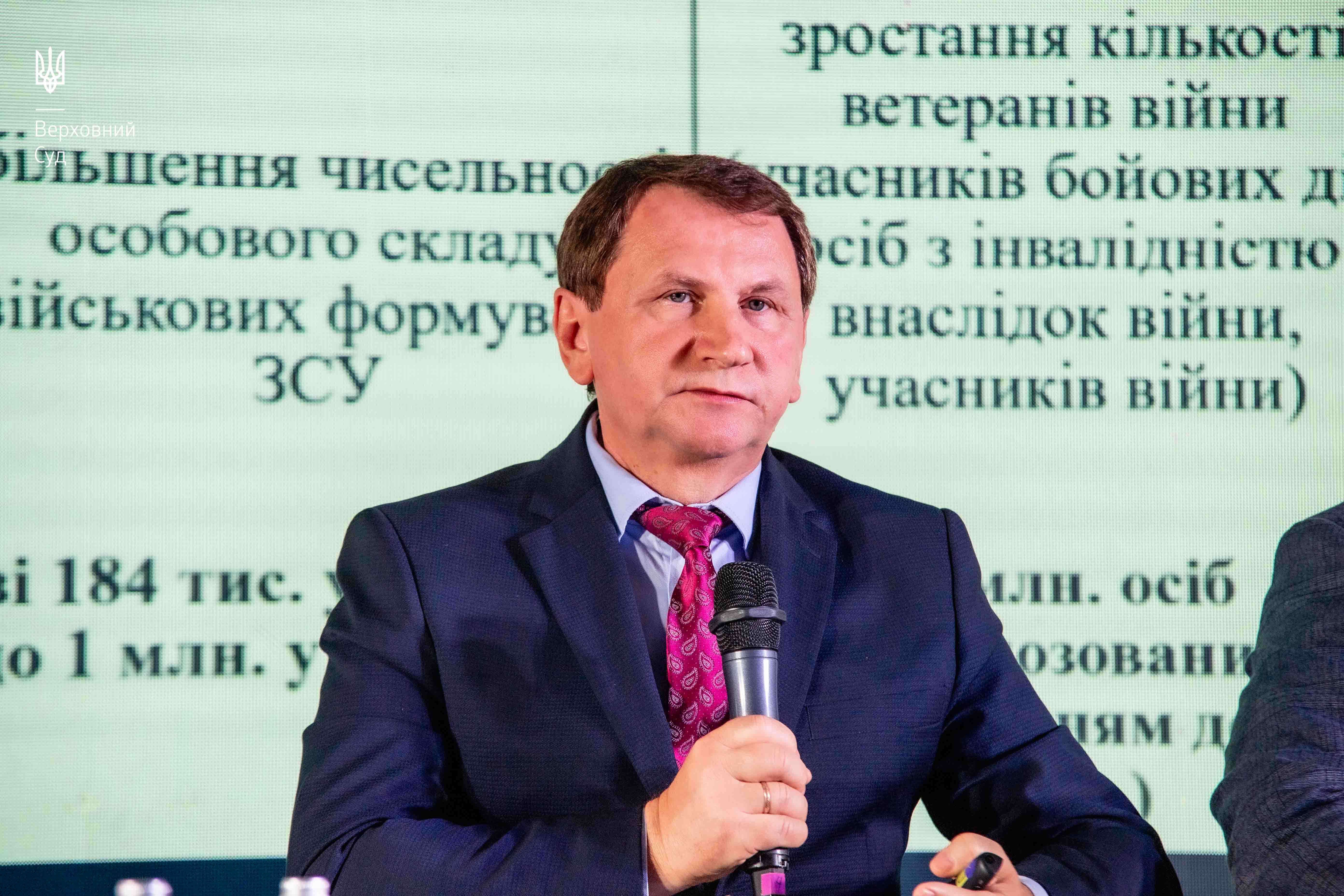
He pointed out that public relations — and, accordingly, judicial statistics — have undergone significant transformation during the period of martial law in Ukraine. Since February 2022, the President of Ukraine, the Cabinet of Ministers, the Verkhovna Rada, and other state bodies have adopted hundreds of thousands of regulatory legal acts concerning military service, the legal status of servicemembers, their rights, freedoms, and responsibilities, the conscription of civilians, military property, military administration, families of servicemembers, occupied territories, and resistance to Russian aggression. A significant portion of these legal acts is classified or restricted in access.
The experience of NATO member states and many other countries confirms the urgent need to establish military courts and demonstrates their effectiveness. According to the judge, to ensure law and order, discipline, and combat readiness within the Armed Forces of Ukraine, there should be functioning military courts, a military prosecutor’s office, and military police.
Given the large number of servicemembers engaged in countering the armed aggression of the Russian Federation against Ukraine, Oleh Tkachuk emphasized the need to ensure a comprehensive legal protection system not only for those currently fighting but also for war veterans and their families. Considering that over four million cases are currently pending before the general courts, he noted that justice requires support from military lawyers—namely, judges of military courts.
In the speaker’s view, the creation of military courts would partially reduce the caseload of the judiciary by taking on matters that do not arise in peacetime and would ensure that specialized cases in the military sphere are adjudicated by judges who understand the specifics of military service and are familiar with military law.
“The establishment of military courts that will provide effective and fair justice in criminal cases involving servicemembers (reservists and conscripts), public law disputes between servicemembers and authorities exercising public power in the defenñe sphere, and cases concerning the social and legal protection of servicemembers, war veterans, and their families should comply with the constitutional principles of territoriality and specialization of the judiciary in Ukraine. The Constitution of Ukraine does not prohibit the creation of military courts. Moreover, it empowers the President of Ukraine to appoint judges to military courts upon submission by the High Council of Justice, following the procedure established by law. At the same time, such appointments may be made under the Constitution without lengthy competitive selection procedures”, noted Oleh Tkachuk.
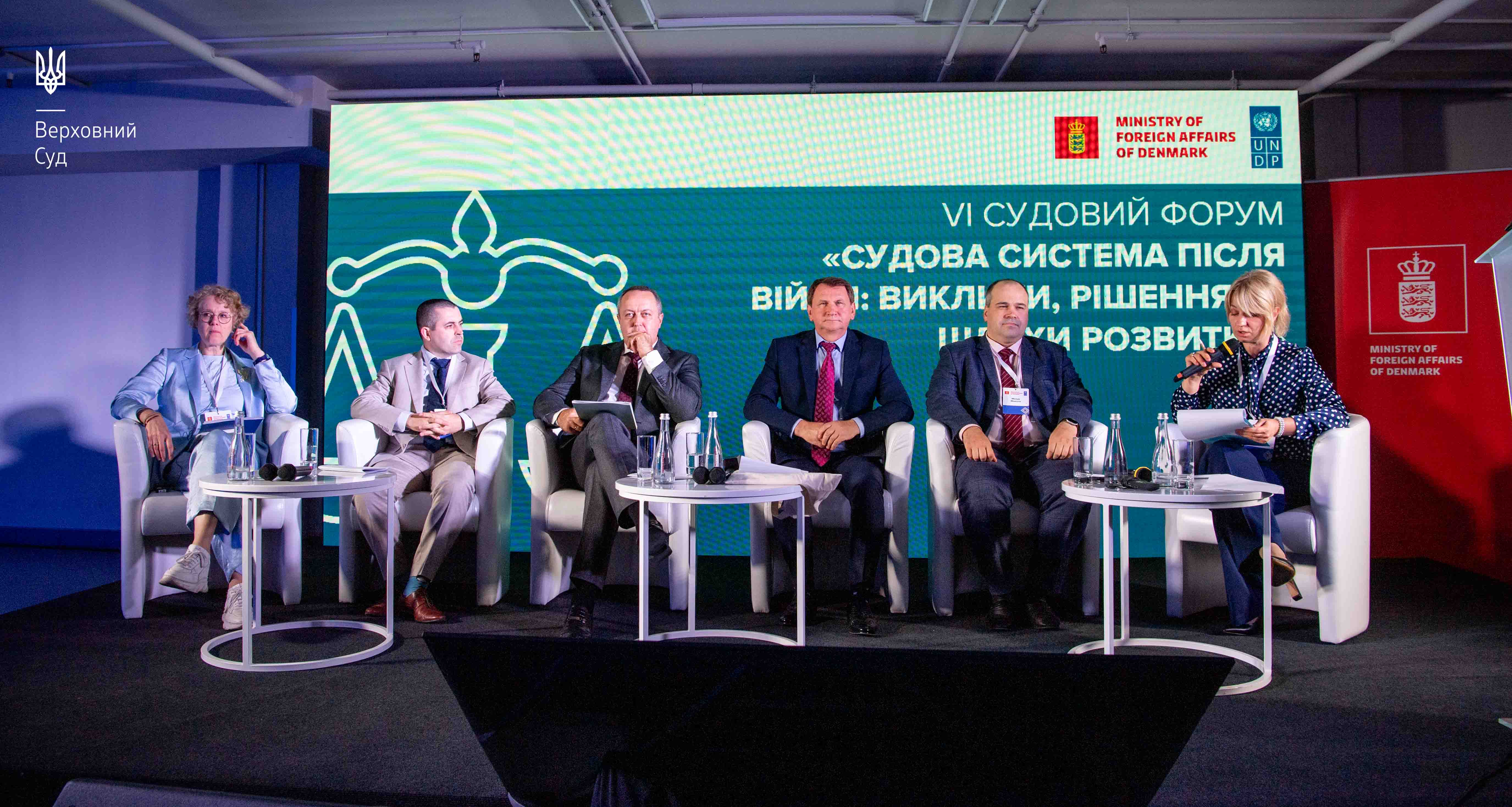
Regarding the personnel reserve for forming the corps of military judges, the speaker recalled that currently, about 50 judges of various instances and jurisdictions are serving in military formations of the Armed Forces of Ukraine, along with more than 500 court staff members. Thus, by transferring these judges in military service for further work in military courts, nearly the entire composition of judges for the military judiciary could be formed — and the same applies to court administrative staff.